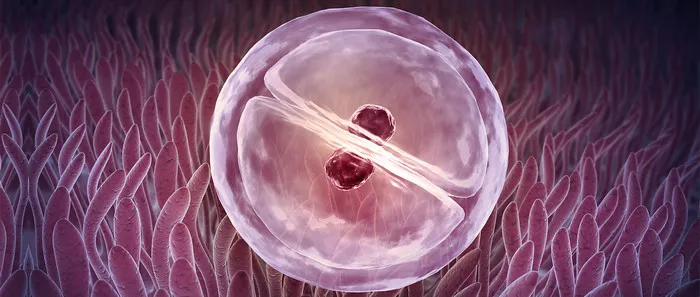The Indian Council of Medical Research (ICMR), in collaboration with Amity University, has unveiled a groundbreaking artificial intelligence (AI) tool designed to identify Y chromosome microdeletion (YCMD), a genetic condition that causes male infertility. The tool also predicts the success rates of in-vitro fertilization (IVF) treatments, offering hope to couples struggling with infertility. The study detailing this development was published in the Journal of Assisted Reproduction and Genetics last week.
Male infertility is a contributing factor in nearly half of all infertility cases, according to Dr. Deepak Modi, Senior Scientist at ICMR’s National Institute for Research in Reproductive and Child Health (NIRRCH) and the lead author of the study. He explained that one of the most common causes of male infertility is Y chromosome microdeletion, which affects around one in ten men experiencing infertility. This genetic defect prevents the testes from producing sufficient sperm, leading to infertility.
For men with YCMD, conventional treatments to boost sperm production are ineffective. As a result, assisted reproductive technologies (ART), particularly IVF, are often the only viable solution for parenthood. The AI tool, named ‘Fertility Predictor’, developed by ICMR-NIRRCH and Amity University, is designed to predict sperm retrieval rates and IVF success, offering invaluable insight into the likelihood of successful fertilization, clinical pregnancy, and live birth rates based on the specific type of Y chromosome microdeletion.
Dr. Modi emphasized that the tool can help couples make more informed decisions about their reproductive options. However, he also cautioned that any male offspring born through IVF from fathers with YCMD will inherit the same genetic defect, making them infertile as well, due to the condition’s 100% transmission rate from fathers to sons.
The development of this AI tool took over two years and involved analyzing data from more than 500 men with YCMD who underwent ART. By applying machine learning algorithms to this data, the tool was able to predict IVF outcomes with an accuracy rate of approximately 80%. Dr. Stacy Colaco, Scientist at NIRRCH and the first author of the study, highlighted that the tool was further validated on a separate subset of data to confirm its effectiveness.
Dr. Abhishek Sengupta, of Amity University, elaborated that the ‘Fertility Predictor’ not only provides predictions for clinical pregnancy and live birth rates but also generates a numerical output for these chances based solely on the type of Y chromosome microdeletion. Validation studies confirmed the tool’s robustness and its high accuracy in forecasting these critical fertility outcomes.
This innovative AI-driven tool marks a significant advancement in fertility treatment, offering greater precision and support for couples navigating the complex world of infertility and assisted reproduction.
Related topics:
Actress Sambhavna Seth Announces Devastating Miscarriage After Early Pregnancy Joy
Sutton United FC Partners with The Male Fertility Clinic to Raise Awareness for Male Health
Alabama IVF Wrongful Death Lawsuits Dismissed Following Controversial Court Ruling


























